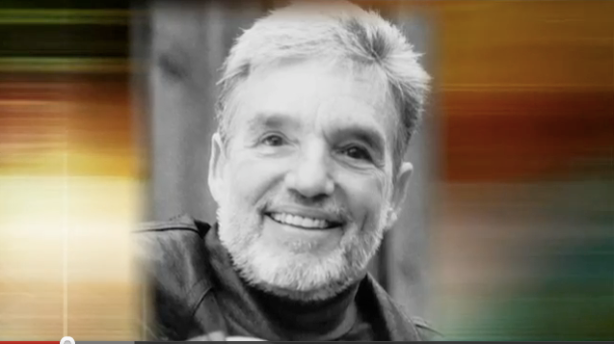Reviewed by Fred W. Anson
Title: Recovering Agency: The Price of Nice
Author: John Bradshaw
Publisher: John Bradshaw Media Group
Genre: Non-fiction, psychology
Year Published: 2008
Length: 100 minutes
Binding: Audio CD
ISBN10: 1573882259
ISBN13: 978-1573882255
Price: $70.00
Many of us remember John Bradshaw through his two PBS televised series on the family and “Inner Child” therapy (entitled “Bradshaw on the Family” and “Homecoming” respectively) with fondness. Some of us had an epiphany, others had fodder for new jokes, and still others had both. I was in the last category. At first I found in Bradshaw an endless mine for jokes (“My family was so out of control you could have used it for a wind chime”, “My inner child punched your inner child in the nose”, etc.) but many years and several family traumas later found it to be a rich well of wisdom . . . and some really silly “out there” New Agey junk. With Bradshaw one has to have one’s discernment filters up to separate the wheat from the chaff. Thankfully the audiobook being reviewed here is, in this reviewer’s estimation, mostly wheat.
Those familiar with those earlier Bradshaw works will remember that he repeatedly introduced the concept of the price of nice in them both. However, he didn’t go into much detail on it, nor did he give the antidote for the problem. “Problem?” the reader may be asking at this point, “How can being nice be a problem?” As the product description from Mr. Bradshaw’s website explains:
“The price is of nice is about your own life, and not really being connected with others,” says noted New York Times Best Selling Author John Bradshaw, “Nice people often finish last in many ways.”
In this powerful lecture, THE PRICE OF NICE, psychologist and Emmy nominated talk show host John Bradshaw, exposes the hidden and frequently destructive forces behind the façade of being the “nice guy”, a people pleaser and co-dependent. This lecture is for people who use “nice” as a disguise to cover shame. John Bradshaw uncovers the dishonestly, selfishness, and resentments that builds as a result. He explains how to heal from co-dependency.
From our earliest years, we learn that we are rewarded with acceptance for being “nice” at the expense of being denied the expression of our true feelings or being who we really are. Ultimately, we become the actor in a role of being the nice guy or sweetheart. John Bradshaw explains how such behavior can destroy relationships and intimacy by never being honestly connected with others. It creates an intimacy vacuum where the victim is the nice person
In its ultimate destructive form, it erupts into rage or spontaneous acts of violence or it can be internalized in the form of emotional or physical illness. John Bradshaw offers practical insights into how we can learn to be kind but firmly direct about how we feel and find that place in our lives where we can be who we are. This series provides excellent resources and will help the listener understand how toxic, and potentially dangerous, a person who is, on most levels, “too nice,” can be. Ministers, counselors, therapists and anyone in helping professions could gain much understanding from the material found in this series. The problem with being overly nice is that it is a mask for stored internal rage and it is at the same time rage producing.
And as he explains in the lecture, nice behavior eventually has a price for both the nice person and the people involved with him/her. It is alienating, indirectly hostile, and self destructive because:
1. The nice person tends to create an atmosphere such that others avoid giving honest, genuine feedback. This blocks emotional growth.
2. Nice behavior will ultimately be distrusted by others. That is,it generates a sense of uncertainty and lack of safety in others who can never be sure if they be supported by the nice person in a crisis situation that requires an aggressive confrontation with others.
3. Nice people stifle growth of others. They avoid giving others genuine feedback,and deprive others of a real person to assert against. This tends to force others in the relationship to turn their aggression against themselves. It also tends to generate guilt and depressed feelings in others who are intimately involved and dependent on them.
4. Because of chronic niceness others can never be certain if the relationship with a nice person can endure a conflict or sustain an angry confrontation. If it did occur spontaneously, This places great limits on the potential extent of intimacy in the relationship by placing others constantly on their guard.
5. Nice behavior is not reliable. Periodically the nice person explodes in unexpected rage and those involved are shocked and unprepared to cope with it.
6. The nice person by holding aggression in, may pay a physiological price in the form of psychosomatic problems and a psychological price in the form of alienation.
7. Nice behavior is emotionally unreal behavior. It puts severe limitations on all relationships and the ultimate victim is the nice person him/her self.
Mr. Bradshaw explains in the lecture that the antidote for nice behavior isn’t being mean, it’s being authentic. This can be a scary proposition for those of us who have become accustomed to using “nice” as a defense or coping mechanism. In particular, those recovering from a religious addiction may come to find that the “Be ye nice!” 11th Commandment of far too many of our faith communities has become so embedded in their theology and religious worldview that it’s painful to knead it slowly out of the tangled up knot that they’ve created. Very often from these individuals, we will hear the protest that to not be “nice” isn’t Christlike (or whatever religious terminology that’s used to justify using niceness as a hiding place and aggression suppressant). To those folks I offer this:
Jesus wasn’t Christ-like
Jesus was incredulous.
He was exasperated.
He was furious.
He insulted.
He ridiculed.
He told of coming judgment.
He exorcised demons.
He said he was God.
He said he had final authority given to him to judge the living and the dead.
He said he had power over life and death.
He scared people.
He confused people.
He repulsed people.
He wouldn’t answer questions asked by the local authorities.
He stayed away three days knowing Lazarus would die, and then wept when he showed up to his tomb.
He supplied the party wine.
He preached fire and brimstone.
He used satire and mockery.
He frustrated his mother.
He told his apostles they had new names when he met them.
He used frustratingly vague metaphors and parables to purposefully judge a stubborn people (fulfilling Isaiah), and then later told the hidden meanings to the apostles.
He chose a forerunner who looked and smelled like a crazy hobo, and who badgered the local mayor over sexual and marital ethics.
He healed people on the Sabbath just to tweak the religious elite.
He monitored financial giving and gave live commentary on it.
He said the world hated him and his followers.
He told people to eat his flesh and drink his blood and let them walk away misinterpreting.
He had incredibly awkward and blunt conversations about spiritual things 15 seconds into meeting a stranger.
He let a presumably sensual woman wipe his feet with her hair.
He told a female stranger that she had five husbands.
He went out to eat with creepy guys who preyed on families via financial extortion.
He went to the most significant religious structure local to him and said he would destroy and rebuild it, speaking of his own body and predicting the destruction to come.
He said he existed before Abraham.
What is “Christ-like” about any of that?[1]
Based on the example of Christ alone I would suggest that Bradshaw is onto something: Christ was always authentic even though He wasn’t always “nice”. I would propose to my fellow recovering religious addicts that it’s far better to be authentically genuine than inauthentically nice. Perhaps being truly Christlike, simply means being yourself – that is the new creation spoken of in 2 Corinthians 5:17 under the guidance and direction of the Holy Spirit. I can’t help but wonder if that was what Paul was really describing in Romans 8 and Galatians 5 when he wrote about “walking in the Spirit”. The incarnated Christ exemplified “walking in the Spirit” and showed the full range of human emotion and behavior – including aggression and directness in that walk.[2] Simply put, the price of nice is too high if it means compromising truly Christlike behavior isn’t it?
In the end, I found “The Price of Nice” to be an enlightening and liberating audiobook – and one with significant biblical support to boot.[3] I suspect that you will too.
NOTES:
[1] Aaron Shafovaloff, “Jesus wasn’t Christ-like” And for those wondering this isn’t in the Bradshaw lecture, I’ve added it here to support my point.
[2] I tackled the subject of the biblical case for aggression in my review of Andy Stanley’s book “Enemies of the Heart: Breaking Free from the Four Emotions That Control You” entitled, “Three Hits and a ‘Whiff'”.
[3] For those who are unaware, John Bradshaw was raised Roman Catholic and has a Bachelor’s Degree in Sacred Theology. Due to the rather overt New Age and Post Modern nature of some of his teachings I’m uncertain what where he stands theologically today – though in my opinion, he seems to be leaning toward the old heresy of Christian Pantheism – though I could be wrong.
As I said in the introduction, one must always have one’s discernment filters up to separate the wheat from the chaff when it comes to Bradshaw. I always find an abundant of gems in his work but sometimes I have to push aside some pockets of New Age rubbish to get to it.








![98622[1]](https://beggarsbreaddotcom.files.wordpress.com/2013/04/986221.jpg?w=614)
 (as performed on
(as performed on 





